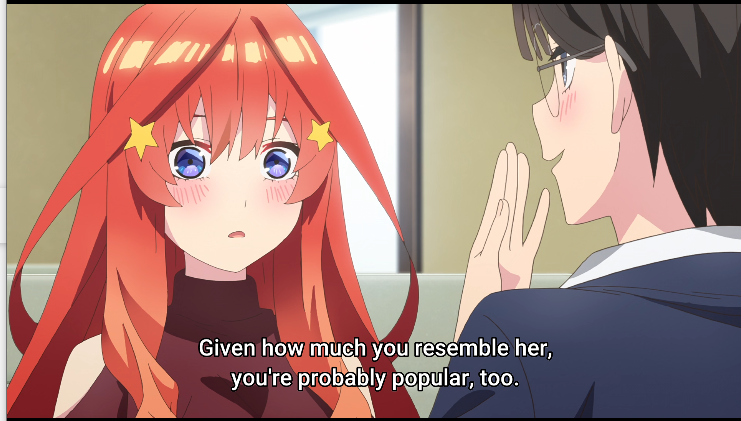In some subtitles of S02E06 of the anime adaptation of the manga The Quintessential Quintuplets, there's this line by a character named Shimoda, who was the student of now deceased character named Rena Nakano spoken to a character named Itsuki Nakano, who is the daughter of Rena Nakano.
The context of this scene is that Shimoda is explaining to Itsuki how beautiful Itsuki's mom was and how many students were a fan of Itsuki's mom for both beauty and personality.
Given how much you resemble her, you're probably popular, too.
that seems to be based on this line which I'm probably transcribing incorrectly from vol07ch57
お嬢ちゃんも先生似だしいけるんじゃねーか ?
that seems to translate
Isn't the young lady like a teacher?
Or less literally
Young lady, are/aren't you like Sensei?
Question: Is there technically no word 'popular' there (and then 'popular' is probably just used by the subtitle creators to refer to the scene immediately prior) ?


